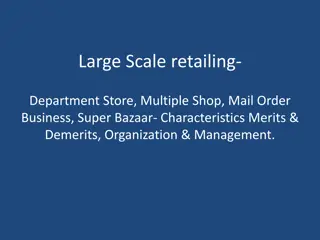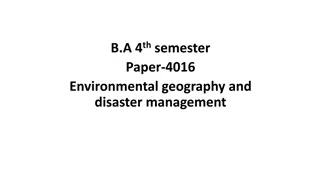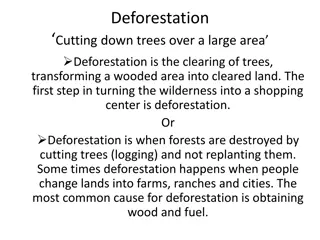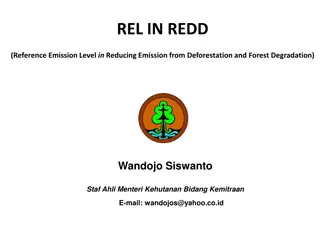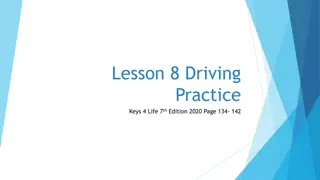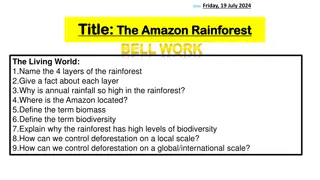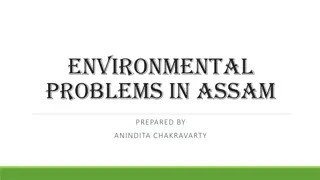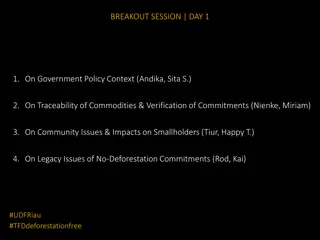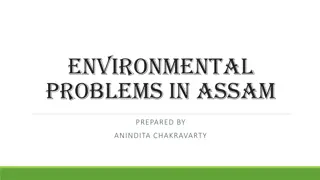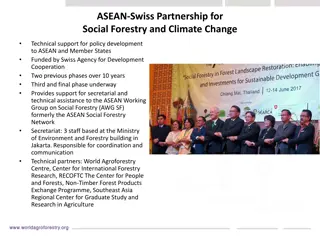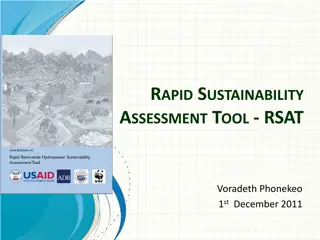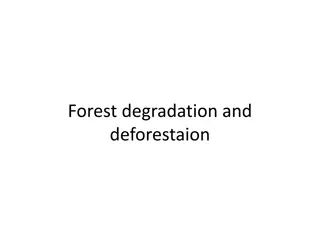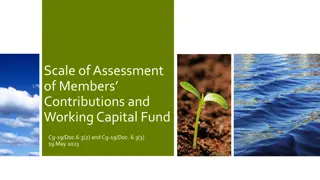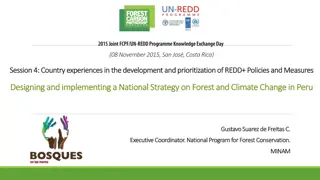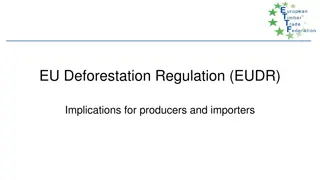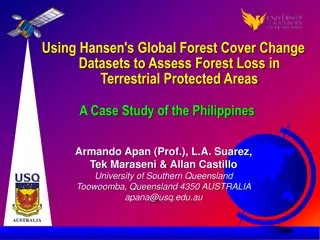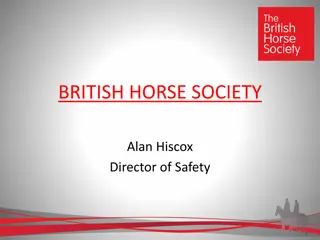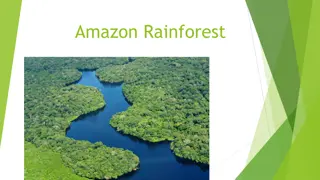Addressing Large-scale Deforestation Drivers in the Mekong Region
This initiative by the Wildlife Conservation Society (WCS) aims to understand and combat the significant causes of deforestation in the Mekong region, particularly focusing on poorly planned industrial agriculture and extractive industries. Through in-depth studies, policy formulation, and multi-stakeholder land-use planning, the project seeks to reduce the impact of deforestation and promote sustainable practices across various landscapes in Laos, Cambodia, and Myanmar.
Download Presentation

Please find below an Image/Link to download the presentation.
The content on the website is provided AS IS for your information and personal use only. It may not be sold, licensed, or shared on other websites without obtaining consent from the author.If you encounter any issues during the download, it is possible that the publisher has removed the file from their server.
You are allowed to download the files provided on this website for personal or commercial use, subject to the condition that they are used lawfully. All files are the property of their respective owners.
The content on the website is provided AS IS for your information and personal use only. It may not be sold, licensed, or shared on other websites without obtaining consent from the author.
E N D
Presentation Transcript
Addressing Large-scale Drivers of Deforestation in the Mekong Region Wildlife Conservation Society (WCS) NICFI Grantees meeting, Oslo, 28 Oct. 2013 Thematic areas Sustainable landscapes REDD+ relevant commodity supply chains Planning and implementation of REDD+
Goal Understand, plan and demonstrate appropriate policy and landscape-level responsesthat ..address large-scale drivers of deforestation.. in particular the expansion of poorly planned and quasi-legal industrial agriculture and extractive industries, in the Mekong region
Partners 5 focal landscapes across 3 countries Lao, Cambodia, Myanmar Regional - Forest Trends - Global Environment Institute Lao - Land Issues Working Group - Village Focus International Cambodia - Vishnu Law Group - Sansom Mlup Prey The work builds on well-established WCS field programs and country offices
Outcome 1: Improved understanding of large-scale drivers of deforestation in the Mekong region and their impacts by governments, development partners, private sector actors and civil society. Output 1.1: Country-specific studies of the large-scale drivers of deforestation and regional linkages Output 1.2: Analyses of the commodity chains for key commodities (e.g. oil palm and rubber in particular) Output 1.3: Increased availability of information on planned and existing development activities Output 1.4: Profiles of companies that are causing large-scale deforestation in the region
Outcome 2: Formulation of policies to reduce the impact of large-scale drivers of deforestation by government and private sector actors and pilot implementation Output 2.1: Improvements in policies across the region to regulate concessions and land-use planning Output 2.2: Development of the new Environmental and Social Impact Assessment (ESIA) law for Cambodia Output 2.3: Stronger sustainability policies for Chinese State-Owned Enterprises Output 2.4: Examples of best practice in forest conservation offsets used to inform sectoral policies
Outcome (3) Implementation of multi-stakeholder land-use plans to meet economic development and forest conservation goals across four critical landscapes covering 2.0 million hectares of forests in the region Output 3.1: Development or revision of government land-use plans for each landscape Output 3.2: Effective implementation systems for landscape level plans Output 3.3: Establishment of partnerships with major private sector entities in and around the landscapes Output 3.4: Long-term monitoring of drivers of deforestation and the impacts of project activities
Outcome (4) Established models and policy guidance for site-level multi-stakeholder approaches to protecting forests and reducing rural poverty, benefiting at least 80 villages and 5000 households Output 4.1: Villages develop land-use plans and obtain land titles and tenure over natural resources Output 4.2: Established conflict resolution mechanisms to resolve land and forest disputes Output 4.3: Implementation and scaling-up of incentive-based schemes, such as PES Output 4.4: Monitoring of site-level impacts and documentation of lessons learned




